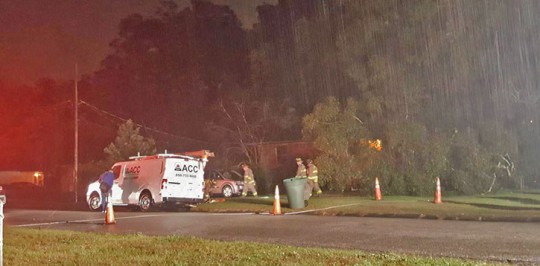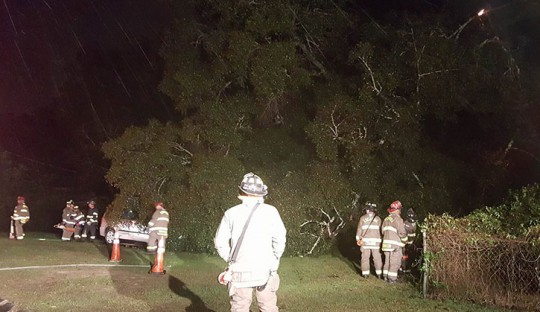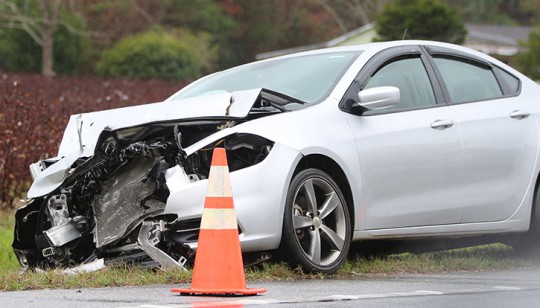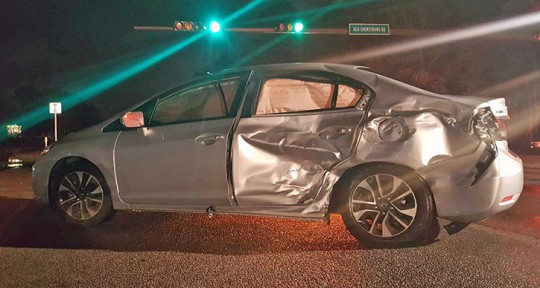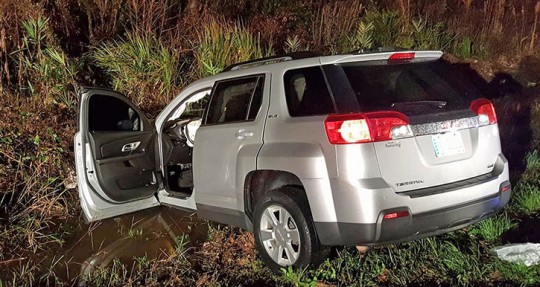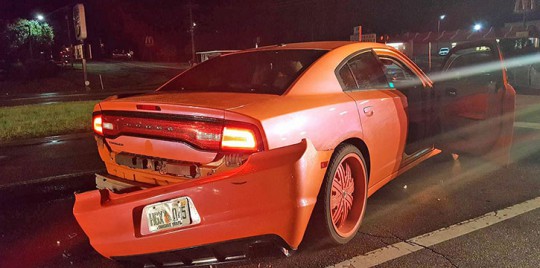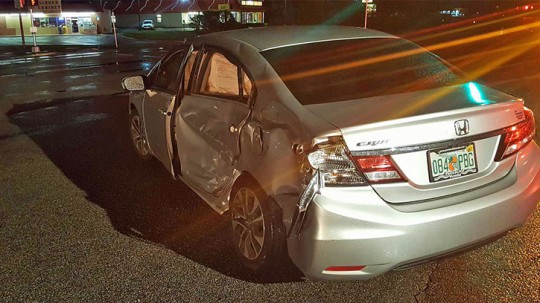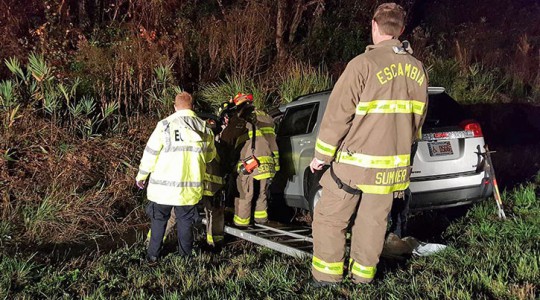‘Mass Confusion’ As Florida Pot Law Goes Into Effect
January 7, 2017
Even as the state prepares to carry out a constitutional amendment authorizing medical marijuana, a lack of guidance from health officials could create a “very murky and dangerous legal area” for patients and doctors.
Authors of the amendment, industry insiders and legislative leaders have called on the Department of Health to clarify what doctors and dispensing organizations can legally do under existing state laws and the voter-approved amendment that went into effect on Tuesday.
 To date, the health agency has remained mum, referring only to the language of the constitutional amendment overwhelmingly approved by voters in November and to state laws approved in 2014 and 2016.
To date, the health agency has remained mum, referring only to the language of the constitutional amendment overwhelmingly approved by voters in November and to state laws approved in 2014 and 2016.
Health officials have repeatedly refused requests for an interview with Office of Compassionate Use Director Christian Bax, who has been at the helm since the state’s first pot purveyors started cultivating this year.
Recent questions center on whether doctors are allowed to add to an existing state database patients who qualify under the constitutional amendment, which includes a host of diseases not previously authorized for cannabis treatment.
Medical industry officials and a state lawmaker instrumental in the passage of current laws regulating medical marijuana advised doctors to be cautious.
“If you are suffering from one of the conditions that is listed in the constitutional amendment and you sought medical cannabis for those treatments, you would be working and dealing in a very murky and dangerous legal area,” state Sen. Rob Bradley, R-Fleming Island, told The News Service of Florida Tuesday.
A Department of Health spokeswoman provided little insight Tuesday when asked whether physicians are allowed to add patients eligible under so-called Amendment 2 to the existing database.
“Doctors should probably consult their legal representation to ask that question,” agency spokeswoman Mara Gambineri said in a telephone interview.
Under current laws, doctors may order non-euphoric marijuana for patients with chronic muscle spasms or cancer, or full-strength marijuana for terminally ill patients.
But some doctors have started to add patients who meet the requirements of the broader Amendment 2 to the state-run “compassionate use registry,” even before health officials have crafted rules governing the newly approved amendment.
“I’m leaning toward telling any physician out there to be extremely careful,” Florida Medical Association General Counsel Jeff Scott told The News Service on Tuesday. “I certainly wouldn’t proceed to order medical marijuana under the expanded category of conditions pursuant to Amendment 2 until there’s been legislative or rule-making action by the department.”
Bradley said he plans to shepherd a bill laying out guidelines for the constitutional amendment during the legislative session that begins in March.
In the meantime, proponents of Amendment 2 as well as some marijuana operators are demanding that the department provide adequate guidance to the industry about the proposal approved by more than 70 percent of Floridians in November.
The amendment, heavily bankrolled by Orlando trial lawyer John Morgan, legalized marijuana for patients with a host of illnesses, including cancer, glaucoma, AIDS, post-traumatic stress disorder, Crohn’s disease, Parkinson’s disease, multiple sclerosis or other debilitating medical conditions of the same kind or class enumerated by the amendment.
Ben Pollara, campaign manager of the political committee that led the drive to pass the amendment, accused the department of failing to provide clarity to doctors and patients about the impact of the constitutional amendment.
“And until the department issues some serious clarifications, there’s a state of mass confusions with patients and physicians,” Pollara said in a telephone interview Tuesday. “It’s creating some undue chaos that needs to be alleviated sooner rather than later.”
Privately, industry operators complained fiercely about the department’s silence on the issue.
The agency has a brief message about the amendment posted on its website, advising that the initiative would become effective Tuesday. The current Florida law “remains in effect and the Florida Department of Health, physicians, dispensing organizations, and patients remain bound by existing law and rule,” the website reads. “Following Amendment 2’s effective date, the Department is directed to promulgate rules to implement Amendment 2 within 6 months, and to implement those regulations within 9 months.”
Another unanswered question is whether the dispensing organizations — licensed by the state to grow, process and distribute medical marijuana — will be in trouble for providing cannabis to patients who are registered in the state database but do not meet eligibility criteria under the 2014 and 2016 laws.
Currently, a patient must have a 90-day relationship with a doctor, who has to certify that the patient meets the requirements for the non-euphoric marijuana or, if terminally ill, for full-strength marijuana. The doctor then must enter the patient and treatment delivery orders into a state-run database.
State law makes it a crime for doctors to enter patients into the database if the patients do not meet the current statutory criteria for marijuana treatment.
Under Amendment 2, patients do not have to be entered into the statewide registry. Instead, doctors recommend the marijuana treatment, patients are then given identification cards — issued by the health department — and “medical marijuana treatment centers” fill orders for the cannabis treatment.
The amendment gives the state six months to craft rules related to the medical marijuana treatment centers, and nine months to start issuing patient ID cards.
“If there is confusion as to who is allowed to be on the registry or not, then that puts the dispensing organizations in the position of potentially selling to someone who is not legally authorized to make a purchase,” Pollara said.
But the head of at least one dispensing organization believes companies like hers do not have to wait for the amendment to be implemented, as long as doctors have ordered the treatment.
“There is definitely some confusion,” Trulieve CEO Kim Rivers said in an interview. “I can lose my license if I’m dispensing to someone who’s not on the registry. If I am dispensing to someone on the registry, following all of our protocols, I do not believe that our license is at risk.”
The industry remains divided on the issue.
“Given the significant public interest regarding Amendment 2, it’s not unexpected that there are divergent opinions as to the implementation of the amendment in this highly regulated industry,” lawyer John Lockwood said. “But I would hope that we will not play politics regarding this issue and will instead work to ensure that the will of the voters is respected.”
by Dara Kam, The News Service of Florida
Freezing Cold — Pets, Plants, Pipes And Other Tips
January 7, 2017
 When temperatures fall into the 20’s, it is time to take necessary precautions to protect pipes, pets and plants, and check on elderly friends and neighbors.
When temperatures fall into the 20’s, it is time to take necessary precautions to protect pipes, pets and plants, and check on elderly friends and neighbors.
For tonight’s latest forecast, click here.
Here are ways to stay safe during this year’s first round of cold temperatures, courtesy of the American Red Cross:
- Wear layers of lightweight clothing to stay warm. Gloves and a hat will help prevent losing body heat.
- Know the signs of hypothermia – confusion, dizziness, exhaustion and severe shivering. If someone has these symptoms, they should get immediate medical attention.
- Watch for symptoms of frostbite including numbness, flushed gray, white, blue or yellow skin discoloration, numbness or waxy feeling skin.
- Bring the pets indoors. If that’s not possible, make sure they have enough shelter to keep them warm and that they can get to unfrozen water.
- Avoid frozen pipes – run water, even at a trickle, to help prevent them from freezing. Keep the thermostat at the same temperature day and night to help avoid freezing pipes.
- Do not use a stove or oven to heat the home.
- Space heaters should sit on a level, hard surface and anything flammable should be kept at least three feet away.
- If using a fireplace, use a glass or metal fire screen large enough to catch sparks and rolling logs.
- Turn off space heaters and make sure fireplace embers are out before leaving the room or going to bed.
And here are a few extra details and tips from ECUA on protecting pipes against the freeze:
- Insulate pipes or faucets in unheated areas: Pipes located in unheated areas of your house, such as a garage or crawl space under the house or in the attic, are subject to freezing. If you have time to do this before freezing temperatures arrive, wrap these pipes with insulation materials made especially for this purpose. These materials can be found in most hardware stores or home improvement centers.
- Disconnect and drain outdoor hoses: Detach all hoses from faucets and allow them to drain. This action guards against the water in the hose or pipe from freezing and bursting the faucet or pipe to which it is connected.
- Run a trickle of water: When forecasts call for sustained and / or severe freezing temperatures, run a thin trickle of water from the faucet furthest from the water line coming to your house. Usually this is in a room at the back of the house or outside, in the yard. Allowing the water to circulate through your home’s plumbing helps to keep it from freezing. Some consider this a waste of water but the cost of the water used is extremely slight compared to repairing broken pipes and the resulting water damage.
- Remember the backflow preventer: Residents and business owners who have backflow preventers on their properties for water lines, fire lines, irrigation systems, and swimming pools need to protect their backflow preventers from freeze as well. Extended freezes can burst the body of the backflow assembly, rendering it useless. Wrap these pipes with insulation materials, made especially for this purpose. These materials can be found in most hardware stores or home improvement centers. If the device and the water line are not in use at this time (i.e., irrigation system or swimming pool lines), shut off the water supply line and drain the backflow device.
Molino Ballpark Spring Registration Now Underway
January 7, 2017
 Spring registration is underway at the Molino Ballpark.
Spring registration is underway at the Molino Ballpark.
Registration will be held from 10 a.m. until 1 p.m. each Saturday through January 28. The registration fee is $65 for t-ball for ages 4-6, baseball for ages 7-15 an softball for ages 7-16. Signup early by January 14 for an additional $5 off.
Tree Falls Onto House
January 7, 2017
A tree fell onto a house on Flagler Driver Friday night, bringing down power lines. Neighbors said the elderly couple inside the home was able to make it out safely. At one point, the live power line sparked a small fire in the tree’s branches. NorthEscambia.com photos by Kristi Barbour, click to enlarge.
Florida Gov’t Weekly Roundup: Murky Times In Tally
January 7, 2017
It was a confusing week in state government and politics, whether your interest was in the state’s death penalty or its medical-marijuana industry.
 The Florida Supreme Court issued a response to a state request to clarify a major death-penalty ruling — and then took it back, a head-spinning series of events that was labeled “bizarre” by a high-ranking Republican lawmaker.
The Florida Supreme Court issued a response to a state request to clarify a major death-penalty ruling — and then took it back, a head-spinning series of events that was labeled “bizarre” by a high-ranking Republican lawmaker.
Meanwhile, anyone looking for advice on the state of the law about medical cannabis after voters overwhelmingly approved a constitutional amendment in November might have to wait awhile. The Florida Department of Health has largely been mum, even as the constitutional amendment formally took effect.
Less confusing was what Gov. Rick Scott will make one of his top priorities during the legislative session that kicks off in March: counterterrorism squads that the governor says will help respond to attacks like the summer massacre at the Pulse nightclub in Orlando. Then again, as with any budget recommendation issued in January, the fate of that proposal is also a bit murky for now.
MOTION TO STRIKE
The high court hubbub started Wednesday morning, when the Supreme Court issued an order that would have denied Attorney General Pam Bondi’s “request for clarification” in a death penalty case. Less than two hours later, the court more or less said: Never mind.
In a highly unusual move, justices rescinded the order, which would have barred prosecutors from seeking the death penalty in capital cases. The mistakenly issued opinion and its almost immediate retraction further muddled Florida’s embattled death penalty, on hold for nearly a year following a U.S. Supreme Court decision last January.
“The whole thing is bizarre,” House Judiciary Chairman Chris Sprowls, a Palm Harbor Republican and a former prosecutor, told The News Service of Florida.
The order came in the case of Larry Darnell Perry, one of a number of high-profile death penalty cases related to the U.S. Supreme Court ruling last January. That ruling found Florida’s capital sentencing system unconstitutional because it gave too much power to judges, instead of juries.
The Legislature quickly passed a new law intended to address the U.S. Supreme Court ruling. But the Florida Supreme Court struck down the new statute because it did not require unanimous jury recommendations for death to be imposed.
Bondi asked the court to clarify a ruling in Perry’s case that said the new state law was unconstitutional and that it “cannot be applied to pending prosecutions.”
Wednesday’s order would have denied Bondi’s request for clarification. But the court vacated the order because it was released prematurely, according to spokesman Craig Waters. Instead, it should have been held until separate, pending opinions were issued.
“The rule is that courts wait until all of the referenced opinions have been released to the public,” he wrote. “Due to purely human error, that process failed today. The Florida Supreme Court regrets the error and is reexamining its internal procedures to prevent similar errors from occurring in the future.”
In a dissent to the now-vacated opinion, Justice Ricky Polston referenced two death-penalty cases not yet decided by the court. Those cases focus on whether the new law could apply to cases already underway, if judges instruct juries that unanimous recommendations are required for the death penalty to be imposed.
Polston objected that the court should clarify its October ruling in Perry’s case, which he wrote “has created confusion and paralysis across the state regarding the death penalty and capital trials.”
Instead, the majority’s vacated order would have struck down the entire section of the new law dealing with sentencing in capital cases.
Pete Mills, an assistant public defender in the 10th Judicial Circuit, said Wednesday’s rescinded order “will likely be reissued in a similar form” in the future.
“This is a hiccup. This caused confusion for some people but was resolved very quickly,” said Mills, who is chairman of the Florida Public Defenders Association Death Penalty Steering Committee.
When and if that issue gets cleared up, there could be another legal battle over capital punishment in the offing, after state corrections officials adopted a new lethal-injection procedure that includes a drug never before used for executions and another used only by accident.
The Department of Corrections posted the revised three-drug lethal injection protocol on its website Thursday, a day after Secretary Julie Jones signed the new procedure. The move appears to have been prompted by shortages of lethal injection drugs, with manufacturers refusing to sell their substances for use in executions.
Corrections officials expect litigation in response to the new drugs, said corrections spokeswoman Michelle Glady.
“That’s very typical,” she said.
GREEN HAZE
Medical marijuana became legal this week in Florida for a broad range of conditions. Kind of. What that means is still up for grabs.
Citing a lack of guidance from state officials, authors of the November constitutional amendment, industry insiders and legislative leaders have called on the Department of Health to clarify what doctors and “dispensing organizations” can legally do under existing state laws and under the voter-approved measure that went into effect Tuesday.
But the department largely answered by referring to the language of the constitutional amendment and to state laws approved in 2014 and 2016. Those laws allowed more limited uses of medical cannabis.
Recent questions center on whether doctors are allowed to add to an existing state database patients who qualify under the constitutional amendment, which includes a host of diseases not previously authorized for cannabis treatment.
Medical industry officials and a state lawmaker instrumental in the passage of the current laws advised doctors to be cautious.
“If you are suffering from one of the conditions that is listed in the constitutional amendment and you sought medical cannabis for those treatments, you would be working and dealing in a very murky and dangerous legal area,” said state Sen. Rob Bradley, R-Fleming Island.
Bradley said he plans to shepherd a bill laying out guidelines for the constitutional amendment during the legislative session that begins in March.
A Department of Health spokeswoman provided little insight Tuesday when asked whether physicians are allowed to add patients eligible under so-called Amendment 2 to the existing database.
“Doctors should probably consult their legal representation to ask that question,” agency spokeswoman Mara Gambineri said.
Under current laws, doctors may order non-euphoric marijuana for patients with chronic muscle spasms or cancer, or full-strength marijuana for terminally ill patients.
But some doctors have started to add patients who meet the requirements of the broader Amendment 2 to the state-run “compassionate use registry,” even before health officials have crafted rules governing the newly approved amendment.
“I’m leaning toward telling any physician out there to be extremely careful,” Florida Medical Association General Counsel Jeff Scott said.
FIGHTING TERRORISM
Generally, governors will take just about any help they can get in promoting their top legislative priorities. But Gov. Scott could have done without Friday’s reminder of the new American reality, when a gunman opened fire and killed multiple people at the Fort Lauderdale airport.
Early reports gave no real indication of whether the suspect taken into custody was motivated by the formal kind of terrorism or the more general variety, but either could boost the profile of the security issues behind Scott’s request to set up anti-terrorism squads across Florida.
During a media blitz this week, Scott announced that he will include $5.8 million in his 2017-2018 budget proposal to fund a request for counterterrorism efforts by the Florida Department of Law Enforcement.
That Scott’s request represented a sliver of the state’s $80 billion-plus spending plan could reflect the fiscal realities that will face state lawmakers when the legislative session begins March 7. The House and Senate will confront a tightening fiscal outlook that is already prompting talks that increases anywhere in the budget will require cuts elsewhere.
In making his pitch for the counterterrorism money, Scott drew upon the “ISIS-inspired” massacre of 49 people at the Pulse nightclub in Orlando last June, which the governor said was “an attempt to rip at the seams of our society.”
“No family should go through what so many experienced after the attack on the Pulse nightclub,” Scott said. “And we will do everything in our power to make sure this never happens again.”
The money proposed by Scott would fund 46 new special-agent and analyst positions, which would be divided into eight squads throughout the state “whose sole focus” would be counterterrorism, FDLE Commissioner Rick Swearingen said Wednesday.
“As the threats to our nation increase, FDLE is ready to move to the next level,” Swearingen said.
STORY OF THE WEEK: The Florida Supreme Court issued an order about a request for more clarity on its death penalty rulings — but might have caused more confusion by quickly rescinding it.
QUOTE OF THE WEEK: “We can pull a blanket over our head and crawl under it and quit competing with the rest of the world, and there seems to be some folks that are advocating that.” — Senate Appropriations Chairman Jack Latvala, R-Clearwater, defending economic incentive programs.
by Brandon Larrabee, The News Service of Florida
Driver Uninjured In Highway 97 Crash With Semi Truck
January 6, 2017
A driver received only minor injuries when she rear-ended a semi-trailer on Highway 97 in Walnut Hill Friday afternoon.
According to the Florida Highway Patrol, 38-year old Jennifer Peebles of McDavid struck the rear of a semi driven by 61-year old Michael Arnold of McDavid. Arnold had stopped for a pickup truck in front of him that was making a left turn. Peebles receive minor injuries and refused transport to the hospital. Arnold was not injured.
Peebles was cited for careless driving.
The accident is under investigation by the Florida Highway Patrol. The Walnut Hill Station of Escambia Fire Rescue and Atmore Ambulance also responded to the crash.
NorthEscambia.com photo, click to enlarge.
Two People Injured In Predawn Highway 29 Crash
January 6, 2017
At least two people were injured in a three vehicle predawn crash on Highway29.
The accident happened about 4:50 a.m. on Highway 29 and Old Chemstrand Road. Both of the injured were transported to area hospitals by Escambia County EMS. The accident remains under investigation by the Florida Highway Patrol. Further details have not been released.
NorthEscambia.com photos by Kristi Barbour, click to enlarge.
Northview Grad Deploys To Africa In Command Of Arkansas Guard Unit
January 6, 2017
A Century native has deployed for Africa in command of his Arkansas Army National Guard Unit.
 Capt. Tony Stallworth of the Echo Company 39th Brigade Support Battalion is a 2002 graduate of Northview High School.
Capt. Tony Stallworth of the Echo Company 39th Brigade Support Battalion is a 2002 graduate of Northview High School.
The unit’s 66 soldiers will first go to Fort Bliss in Texas for about a month to prepare for a 10 to 11 month mission in Djibouti on the Horn of Africa, providing logistical support for an American airbase.
Stallworth is the son of the late Anthony Stallworth, Sr. and Beverly Stallworth. He and his wife Shieisha Stallworth have two daughters, Amaya and Anya Stallworth.
Pictured top: The Echo Company 39th Brigade Support Battalion deployed from Warren, AR. Pictured inset: Capt. Tony Stallworth. Photos courtesy the Saline River Chronicle News, Saline for NorthEscambia.com, click to enlarge.
GED Classes Begin Monday In Molino
January 6, 2017
Adult Basic Education/GED classes will be starting Monday, January 9th at the Molino Community Center. Tuition is $30 per semester and students may enroll anytime as there is an open enrollment policy.
 George Stone Technical Center is partnering with the Molino Community Center to offer ABE/GED classes every Monday and Thursday from 6-8 p.m. Classes are actively taught by two certified teachers and personalized instruction is given based on each student’s academic level. Tutors are also available during the class in case extra help is needed.
George Stone Technical Center is partnering with the Molino Community Center to offer ABE/GED classes every Monday and Thursday from 6-8 p.m. Classes are actively taught by two certified teachers and personalized instruction is given based on each student’s academic level. Tutors are also available during the class in case extra help is needed.
GSTC also offers GED classes at Ensley Elementary every Tuesday and Thursday from 4-6 p.m with no tuition charge. Classes are also offered at Pathways For Change every Tuesday, Wednesday and Thursday from 9:30 a.m. until noon. Free childcare is also provided at the Pathways For Change site.
Judge Rejects Poarch Creek Gretna Track’s Bid To Change Gambling Ruling
January 6, 2017
A federal judge has rejected a request from a tiny Northwest Florida pari-mutuel operated by the Poarch Creek Indians of Atmore to reconsider his decision in a legal battle between the Seminole Tribe and the state about gambling at tribal casinos.
More than a month after U.S. District Judge Robert Hinkle ruled in favor of the Seminoles, Gretna Racing in Gadsden County, operated by the Poarch Creek Indians of Atmore, sought in December to intervene in the long-running case.
 Hinkle’s ruling in November allowed the tribe to continue offering “banked” card games, such as blackjack, at most of its casinos.
Hinkle’s ruling in November allowed the tribe to continue offering “banked” card games, such as blackjack, at most of its casinos.
The ruling addressed issues related to “designated player” card games, also known as “player banked” games, that have been offered in recent years at pari-mutuel facilities across the state. Hinkle ruled that the games violate a 2010 agreement that gave the Seminoles exclusive rights to conduct blackjack and other banked games.
Part of the 2010 agreement authorizing banked card games expired in 2015, prompting the legal dispute. By ruling that the designated-player games violated the agreement, Hinkle cleared the way for the tribe to continue offering blackjack and the other games.
Pari-mutuels — allowed by state law to conduct games only in which players compete against each other — first launched the designated-player games in 2011. Florida gambling regulators approved a rule governing the games in 2014.
The state’s lawyers insisted that the games, in which a player acts as the “bank,” do not violate the Seminole agreement — also known as a compact — or state law, even if the manner in which they are being played at some cardrooms might.
But Hinkle, siding with the tribe in his November order, disagreed.
“The essential feature of a ‘banked’ game is this: The bank pays the winners and collects from the losers,” he wrote.
Gretna is among the numerous pari-mutuel cardrooms in the state that offer the player-banked games, which have eclipsed traditional poker in popularity.
In a motion filed on Dec. 15, lawyers for Gretna argued that Hinkle’s ruling could put the small facility and its operators at risk.
“Any form of player banking … could be construed to be a crime subjecting Gretna’s officers to potential criminal prosecution and possible imprisonment,” wrote attorneys David Romanik and Marc Dunbar, who are also part-owners of the Gadsden County facility.
But on Wednesday, Hinkle — who last month also turned down a request by lawyers for the state asking the judge to revamp his decision — flatly refused to reconsider his ruling, saying Gretna had no right to intervene in the case.
“And even if Gretna could have qualified for permissive intervention on a timely application — not an obvious proposition — I would exercise my discretion to deny intervention at this late date as both untimely and otherwise inadvisable,” Hinkle wrote in the two-page order.
Hinkle, however, indicated his ruling in the dispute between the state and the tribe does not affect Gretna.
“The judgment in this case has no binding effect on Gretna, and the order explaining the judgment will have a practical effect only to the extent a future tribunal finds the reasoning persuasive,” Hinkle wrote. “If, as Gretna seems to believe, it has additional evidence that will persuade a judge to reach a different result, Gretna will be free to present the evidence if ever its own interests become the subject of a judicial or administrative proceeding.”
Meanwhile, Gretna is awaiting a decision from the Florida Supreme Court in a lawsuit filed after state gambling regulators refused to grant the track’s request for a slot machines permit.
Gretna sought the permit after Gadsden County voters approved a referendum allowing slots at the pari-mutuel.
The Gretna case is focused on whether gambling operators can add slots if county voters give the go-ahead, even without the express permission of the Legislature. The court’s decision could have far-reaching implications: Voters in seven other counties — Brevard, Duval, Hamilton, Lee, Palm Beach, St. Lucie and Washington — have also approved slots at local pari-mutuels.
Amid the legal wrangling, Gov. Rick Scott’s administration and the tribe are again trying to negotiate a revised compact after the Legislature last year failed to approve an accord. Senate President Joe Negron, R-Stuart, recently told reporters that he has made it a priority to get a compact ratified, a move that would require legislative authorization.
by Dara Kam, The News Service of Florida


